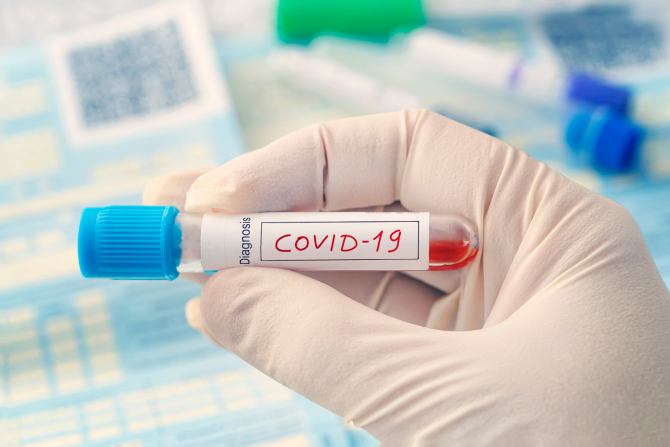There’s no denying that this is a hard time for everyone, but the people feeling it most—besides the sick, of course—are the medical personnel and healthcare professionals fighting COVID-19 on the frontlines. They’re saving lives day after day, and while you can’t join them in the ER, you can still do your part. If you’re wondering
how to help healthcare workers during coronavirus, there are quite a few ways to get involved, from small gestures like touching base and sending lunch money to major moves like sewing masks and donating funds. The biggest help of all? Staying home and practicing social distancing—it’s the only way to ensure
fewer new cases for your doctor and nurse friends to deal with. Read on for eight ways you can show your support.
1. Make Masks (If You’re Crafty)
Obviously, not everyone will be able to whip up a protective non-surgical mask, but if you happen to have a sewing machine and an awful lot of time on your hands (thanks, social distancing), consider giving it a try. The JOANN Fabric and Craft Store website has detailed instructions on
how to make masks at home and where to donate them, and they’ve already received over 11 million masks from volunteers.
2. Donate
If you’re lucky enough to have some extra coin (hello, $1,200 stimulus check), consider donating to coronavirus-related causes. The COVID-19 Solidarity Response Fund for WHO, started by the United Nations Foundation and the Swiss Philanthropy Foundation, is one great option. Another is Direct Relief, an organization currently working to deliver masks, exam gloves and isolation gowns to affected hospitals.
3. Buy Them Lunch
Medical personnel get hungry, y’all! Especially after working up an appetite on the frontlines of a pandemic. If you know someone personally, consider sending them $5 for coffee or $10 for their lunch break on Venmo. If not, there are a few GoFundMes dedicated to providing meals for hospital workers—plus, some of your favorite restaurants are stepping up to do their part. &pizza is allowing customers to buy healthcare workers “hero pies” by texting #FeedThem to 200-03 or heading to their website.
4. Offer Your Assistance
If you know a hospital worker or healthcare professional personally, offer to help out with the little things. Might he or she
have a pet that needs to be let out once or twice during their shift? Can you drop off his or her children at school, or make sure the kids get home safe? It’s possible your friend will have things taken care of already, but showing that you care and are available to help is important.
5. Don’t Bother Them
Before you send that “Hey I just coughed, do you think I have corona?” text to your nurse pal, stop and consider how many other friends are likely turning to them as their personal COVID-19 expert. Then, imagine how hard it must be to work all day on the frontlines and then come home to a phone blowing up with more coronavirus-related messages. Give your friend a break, be respectful, and don’t take advantage of their knowledge or their time. If you do feel symptoms, remember to
call your doctor and organize a formal medical visit.
6. Say “Thank You”
A simple “thanks” can go a long way, y’all. Let your medical personnel friends know you’re proud of them, and that you support them wholeheartedly. Thanking people for their efforts makes their tough jobs a bit more bearable. Everyone wants to be appreciated!
7. Ask “How Are You?”
In addition to thanking your friends who are fighting the pandemic, ask them how they’re holding up. A non-COVID-19 related conversation might be all they’re after in these trying times—or, perhaps
they’re really struggling and need someone to vent to. Check in with your strong friends.
8. Stay At Home
I’m sure you’ve seen the multitude of “We’re at work for you, so stay home for us” videos and images circulating the web, and their message rings true. The biggest way you can support medical personnel is by preventing new cases of coronavirus, and in order to do that, you need to stay home, practice social distancing, and wash your hands. Easy enough.

